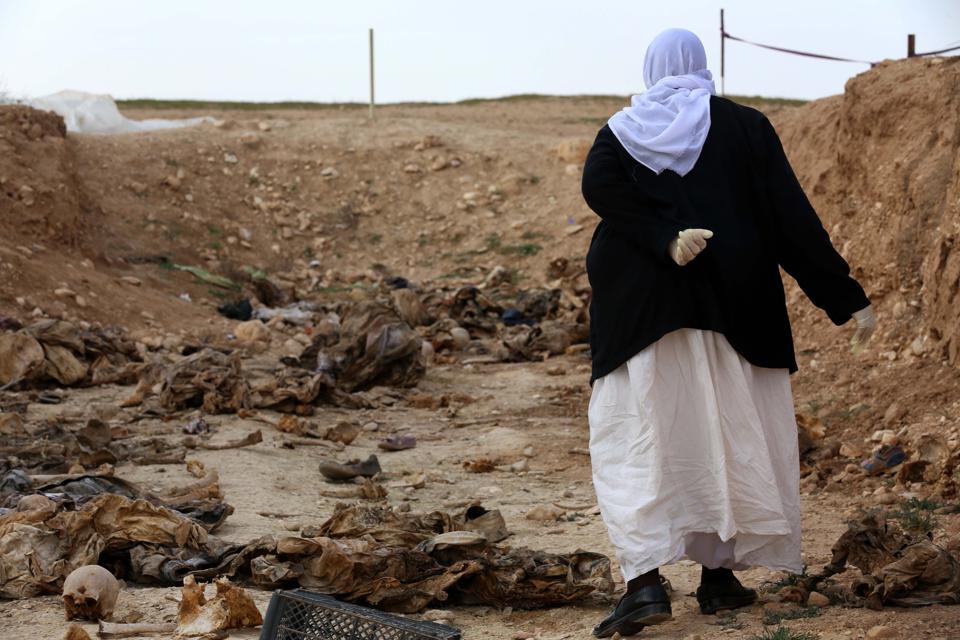Dutch parliament formally recognizes Yezidi genocide

ERBIL (Kurdistan 24) - Dutch lawmakers on Tuesday approved a motion to formally recognize ISIS crimes against the Yezidi (Ezidi) community in 2014 as genocide.
Aangenomen! De Tweede Kamer erkent de genocide op de Yazidis gepleegd door ISIS. #YazidiGenocide pic.twitter.com/pvrbThH7cF
— Jela Keyany (@Jelamo) July 6, 2021
The motion was submitted to parliament on Thursday by Anne Kuik, a Dutch MP for the Christian Democratic Appeal (CDA), and had support from a majority of national political parties. On Tuesday, the majority of the Dutch lawmakers voted for its passage.
The text noted that the EU Parliament, the Parliamentary Assembly of the Council of Europe, the US House of Representatives, the UN Commission on Syria, and recently the Belgian parliament recognized the ISIS crimes against Yezidis, Christians, and other religious groups as genocide.
It also argued that the move was necessary because the Dutch parliament “has not explicitly recognized that genocide has been committed” by the extremist group.
Last week, the Belgian parliament’s Foreign Affairs Committee approved its own resolution to recognize ISIS crimes as genocide.
Read More: Belgian parliament committee recognizes Yezidi genocide
Pari Ibrahim, Founder and Executive Director of the Free Yezidi Foundation, and a member of the community in the Netherlands, told Kurdistan 24 that, a few weeks ago, “We, as the Free Yezidi Foundation, provided testimony and evidence to the Belgian Parliament to have the Yezidi Genocide recognized.”
“I mentioned that my home country, Belgium’s neighbor, the Netherlands, must do the same. After almost seven years of pushing, we are glad that this has finally been recognized. Recognition around the world makes an enormous difference to our people.”
The emergence of the Islamic State and its violent assault on the Ezidi-majority city of Shingal in 2014 led to the displacement of hundreds of thousands of members of the community. Most of them fled to the Kurdistan Region, while others resettled to neighboring countries in the region or to Western states.
Others were not as lucky and remained stranded in the war zone, where they were subjected to atrocities and mass executions at the hands of the extremist group for years. ISIS militants forced women and girls into sexual slavery; kidnapped their children; forced religious conversions; executed scores of men; and abused, sold, and trafficked women and girls across the areas they controlled in Iraq and Syria.
Thousands of Yezidis remain missing still.
Read More: UN releases new video presenting evidence of ISIS genocide against Yezidis in Iraq
Murad Ismael, president and co-founder of the Sinjar Academy, told Kurdistan 24, “We extend our sincere thanks and appreciation to the Parliament of the Netherlands and the great Dutch people who are known to support global humanitarian issues, which also included support for the Yazidi cause, through standing with our society since 2014.”
“Dutch support has included humanitarian work, diplomatic support, Dutch citizens volunteering to serve the Yazidi community, Dutch journalists writing on the Yazidi situation, and Dutch civil society organizations, including Stichting Vluchteling and others providing direct programs in Yazidi areas, Ismael continued.
“This support was culminated today by the adoption of the law recognizing the Yazidi genocide.”
Editing by John J. Catherine
